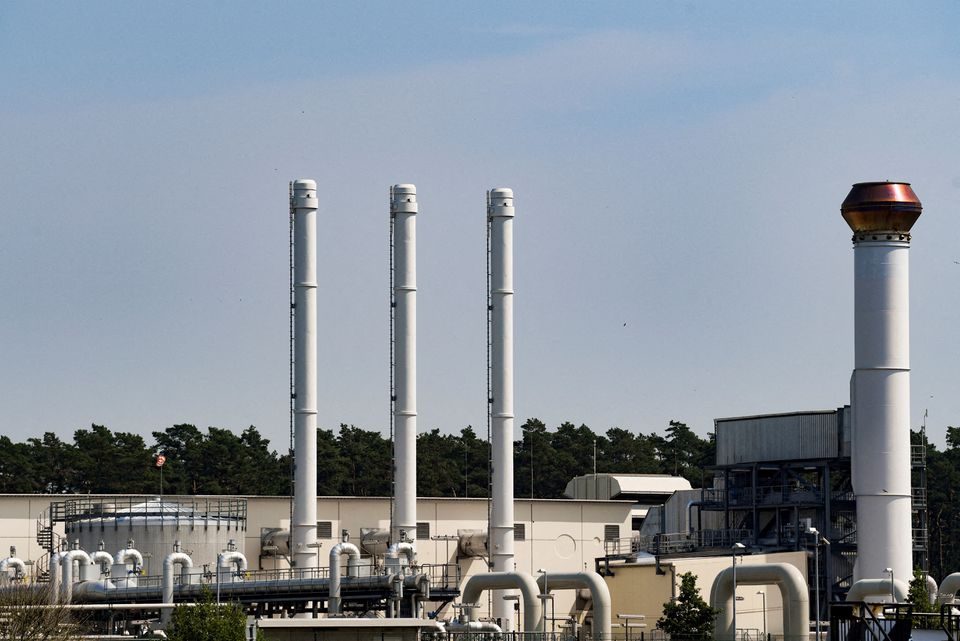PARIS (AFP) — Unstable Russian gas flows to Europe via the Nord Stream 1 pipeline is seen causing recession in the region this winter.
“We now assume that Russian gas flows to Europe via Nord Stream 1 will fluctuate between zero and 20 percent capacity in the coming months,” Matt Oxenford of the Economist Intelligence Unit, said.
And that, Oxenford said, would lead to a recession in Europe in the winter of 2022-2023.
“Given current gas infrastructure, Germany cannot compensate for an 80 percent cut in Russian gas without a drastic reduction in demand, leading to a recession over the winter,” he said.
And with Germany a center of industrial supply chains, that would have a knock-on effect across Europe, wrote Oxenford.
Businesses will suffer cuts before households, and the governments in France and Germany are already looking at who will have to suffer first.
But ordinary people are also being told they will have to adjust to the new reality.
The gas supply from Russia to Germany from the Nord Stream 1 pipeline has already been drastically cut back.
The European Union has told its 27 member countries that they will have to cut their gas consumption by 15 percent.
Germany’s summer campaign focused on lowering the air conditioning on public transport and buying more water-efficient shower heads. Several cities have lowered the temperature in their swimming pools and made cuts in urban lighting.
Italy launched earlier this year what it called “Operation Thermostat” to try to lower heating and cut back on air conditioning in schools and public buildings. Spain and Germany have followed suit.
Latvians have been adjusting since the end of July, when Russia stopped supplying gas to the Baltic former Soviet state.
Bulgaria, Denmark, Finland, the Netherlands and Poland have also already had their gas cut, while other countries have seen their supply reduced drastically.
Deliveries of Russian gas to Germany via the Nord Stream pipeline will be halted for several days at the end of this month, the second stoppage this summer. While ostensibly for maintenance, Berlin has accused Moscow of halting supplies over Western sanctions imposed over Russia’s invasion of Ukraine.
Overall, supply was down in July by around 70 percent, year on year, according to several experts consulted by AFP.
